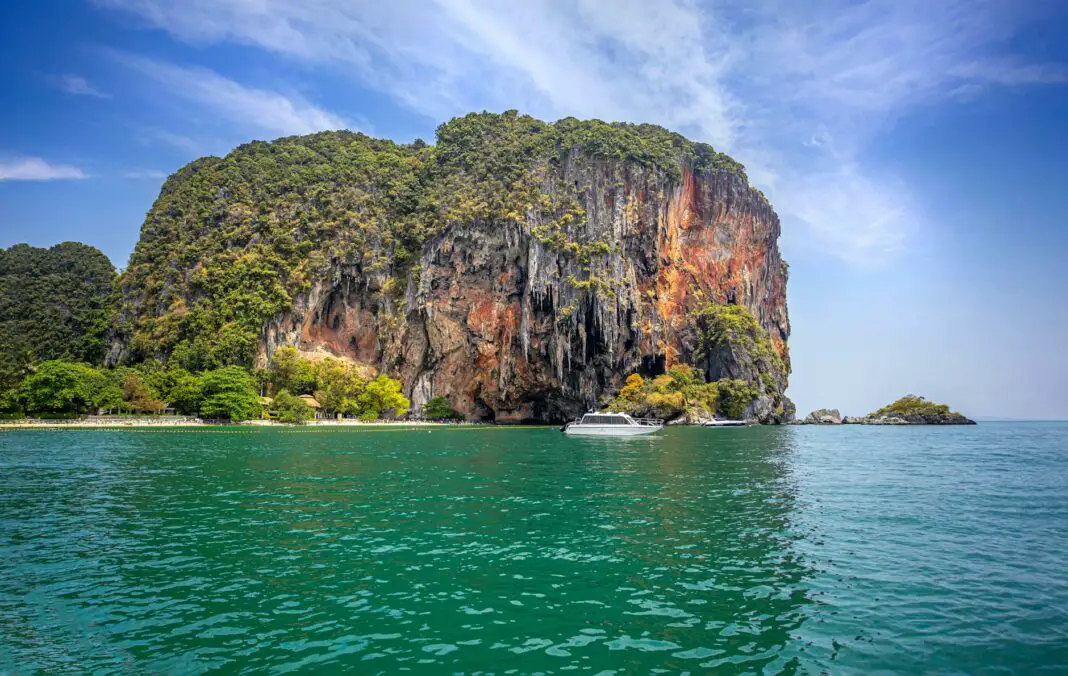Embarking on a trip to Thailand is nothing short of an adventure filled with breathtaking scenery, rich culture, and vibrant wildlife. This Southeast Asian paradise is a treasure trove of natural beauty, from stunning beaches to lush jungles. However, with the rise of tourism, a pressing question lingers: Is Thailand’s beauty worth the cost of conservation? In this blog post, we delve into the enchanting wonders of Thailand while exploring the balance between tourism and environmental preservation, challenging the notion that beauty should come at any price.
From the mystical temples of Chiang Mai to the vibrant streets of Bangkok, Thailand offers experiences that capture the heart and soul of its visitors. However, the growth in tourism has prompted discussions about the impact it has on the environment and local ecosystems. This blog post aims to address these critical issues while highlighting the undeniable charm of Thailand, ensuring that you leave with both inspiration and insight as you plan your journey.
Table of Contents
- Natural Wonders of Thailand
- Cultural Experiences
- The Cost of Conservation
- Actionable Insights for Travelers
- Beyond the Scenery: Ethical Travel
- Embracing Thailand’s Beauty Responsibly
- Frequently Asked Questions
Natural Wonders of Thailand
The enchanting landscapes of Thailand are nothing short of spectacular. Picture towering limestone cliffs creeping dramatically above azure waters in Krabi, or the serene jungles of Khao Sok National Park, teeming with exotic wildlife. Natural wonders, such as the breathtaking Phi Phi Islands and the picturesque countryside of Pai, showcase the diverse ecological beauty found throughout the regions. Each destination serves as a reminder of nature’s captivating allure, urging travelers to cherish and protect these breathtaking sites. Such majesty invites adventure—hiking, snorkeling, and exploring all while basking in the balance of nature’s glory.
However, it is crucial to recognize that these beautiful locations are under threat. With the ever-increasing footfall of tourists, changes in climate, and human activities, the fragile ecosystems are stressed. Protecting these environments not only preserves their existing beauty but also ensures they can be appreciated by future generations. This heartwarming interaction with nature truly brings to light the spirit of conservation necessary to maintain Thailand’s allure.
Cultural Experiences
The cultural fabric of Thailand is as rich as its picturesque landscapes. Visitors are enveloped in the warmth of Thai hospitality, tasting exquisite flavors from street food vendors showcasing local delicacies like pad Thai and mango sticky rice. Furthermore, the majestic temples such as Wat Pho and Wat Phra Kaew offer a deep dive into the spiritual essence of the country, giving rise to both admiration and respect for Thai traditions.
Participating in traditional festivals, like Songkran, the Thai New Year, fosters a deeper connection with the culture. The celebration of water fights and the significance of cleansing are experiences that create lasting memories while promoting respect for Thai heritage. By honoring and engaging with local customs, tourists can embrace a meaningful bond with Thailand, resulting in a mutually beneficial relationship that promotes cultural enrichment rather than mere observation.
The Cost of Conservation
However, as tourism continues to flourish, the cost of conservation becomes a focal point in this discussion. The beautiful beaches and vibrant coral reefs attract visitors, yet the environmental degradation accompanying tourism raises alarms. Authorities struggle to find a balance between economic growth through tourism and the need to maintain ecological integrity. With increased accessibility, many sites face challenges such as littering, coral damage, and harm to wildlife.
This dilemma highlights a critical point: protecting Thailand’s natural and cultural treasures is not a cost but rather an investment in sustainability. Initiatives to preserve and promote eco-tourism can enhance the traveler experience while safeguarding the environment. For instance, eco-friendly resorts have emerged, offering luxurious stays merged with conservation practices, encouraging responsible choices that benefit both nature and travelers.
Actionable Insights for Travelers
Each traveler can play an essential role in preserving Thailand’s beauty, ensuring unforgettable memories become part of a sustainable future. To begin with, choose to stay in eco-conscious accommodations that prioritize sustainable practices, using resources mindfully. Engage with local guides who understand and respect the delicate ecosystems, creating a win-win scenario for both the traveler and the community.
Additionally, participate in volunteer programs focused on conservation, aiding in the protection of wildlife or helping restore local habitats. Simple practices like reducing plastic use and embracing responsible tourism etiquette can significantly impact conserving Thailand’s natural beauty. Mindful choices throughout your trip will resonate positively, making every journey feel purposeful and enriching.
Beyond the Scenery: Ethical Travel
Traveling ethically in Thailand involves more than witnessing its wonders; it’s about fostering respect and appreciation for the country and its people. Engaging with local cultures through community-based tourism offers authentic experiences while directly benefiting local economies. Think about opting for homestays, where you can enjoy the true essence of Thai hospitality and support families while enjoying organic home-cooked meals.
Moreover, when exploring elephant sanctuaries or wildlife parks, ensure they promote ethical practices prioritizing animal welfare over entertainment. By advocating for and supporting such establishments, travelers not only contribute to conservation but also raise awareness about ethical treatment, paving the way for responsible tourism in Thailand and beyond.
Embracing Thailand’s Beauty Responsibly
Ultimately, the allure of Thailand lies not only in its breathtaking beauty but also in the lessons it imparts about conservation and ethical travel. By prioritizing sustainable options and respecting local customs, each traveler plays an integral role in preserving the soul of this remarkable country. The enchanting experience of Thailand will enrich your life, and when approached with a mindful attitude, it also serves as a beacon of hope for fostering sustainable tourism that benefits both the environment and local communities.
Frequently Asked Questions
Is Thailand safe for tourists?
Yes, Thailand is generally safe for tourists, but it’s essential to follow common-sense safety precautions.
What is the best time to visit Thailand?
The best time to visit Thailand typically falls between November and February when the weather is cooler and more comfortable.
How can I travel sustainably in Thailand?
Travel sustainably by choosing eco-friendly accommodations, supporting local businesses, and participating in responsible tourism activities.
What should I pack for my trip to Thailand?
Pack lightweight, breathable clothing, comfortable walking shoes, a reusable water bottle, and essentials based on your planned activities, including your travel itinerary.
Are there wildlife conservation programs in Thailand I can volunteer for?
Yes, numerous wildlife conservation programs allow visitors to volunteer in efforts to protect endangered species and their habitats.
Image Credit: Pexels





